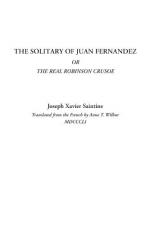He reflects; armed with a bit of iron, he strikes the flinty rocks of the mountains, to elicit from them useless sparks. He then remembers that savages obtain fire without flint and matches, by the friction of two pieces of dry wood; he tries, but in vain; he exhausts the strength of his arms, without being discouraged; he tries each tree, wishing even that a thunderbolt might strike the island, if it would leave there a trace of burning. At last, almost discouraged, he attacks the pimento-myrtle;[1] he recommences his customary efforts of rubbing. The twigs grow warm with the friction; a little white smoke appears, fluttering to and fro between his hands, rapid and trembling with emotion. The flame bursts forth! He utters a cry of triumph, and, hastily collecting other twigs and dry reeds, he leaps for joy around his fire, which, like another Prometheus, he has just stolen, not from heaven, but from earth!
[Footnote 1: Myrtus aromatica; its berries are known under the name of Jamaica pepper.]
Afterwards, in his gratitude, he runs to the myrtle, embraces it, kisses it. An act of folly, perhaps; perhaps an act of gratitude, which ascended higher than the topmost branches of the trees, higher than the culminating summits of the mountains of the island.
But this fire, must he, each time he may need it, go through the same tedious process? Not far from his grotto, in a cavity which a projecting rock protects from the sea breeze, he piles up wood and brush, sets fire to it, keeps it alive from time to time, by the addition of combustibles, and comprehends why, among primitive nations, the earliest worship should have been that of fire; why, from Zoroaster to the Vestals, the care of preserving it should have been held sacred.
At a later period, in the ordinary course of things, he simplified his means of preservation. With some threads and the fat of his game, he contrived a lamp; still later, he had oil, and reeds served him for wicks.
Dating from this moment, the entire island paid tribute to him; the crabs, the eels, the flesh of the agouti, savory like that of the rabbit, by turns figured on his table. When he seasoned them with some morsels of pork, substituting ship biscuit for bread, his repasts were fit for an admiral.
Although the goats had become wild, like the other inhabitants of the island, since all had learned the nature of man, and of the thunder, which he directed at his will, Selkirk still surprised them within gun-shot. Not only was their flesh profitable for food; their horns, long and hollow, served to contain powder and other small articles necessary to his house-keeping; of their skins he made carpets, coverings, and bags to protect his provisions from dampness. He even manufactured a game-pouch, which he constantly carried when hunting.
His salt fish, his biscuit, some well smoked quarters of goat’s flesh, and the productions of his fish-pond, at present constitute a store on which he can live for a long time, without any care, but to ameliorate his condition.




